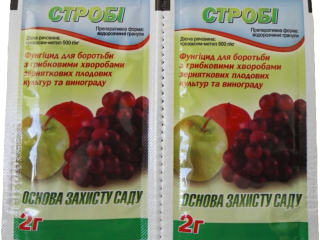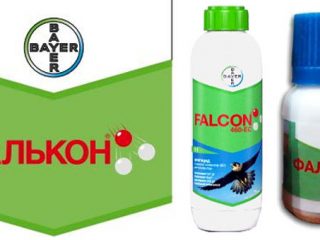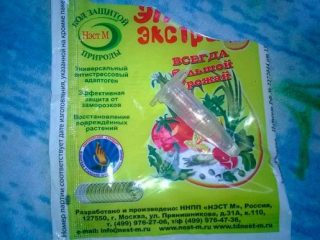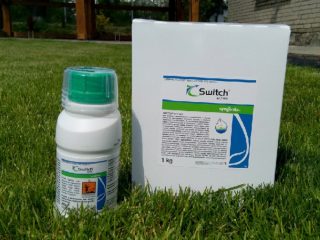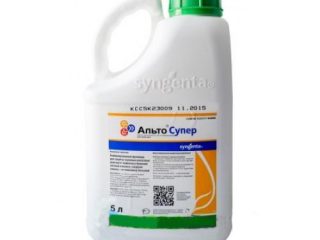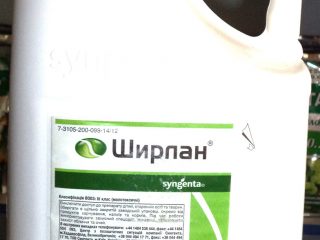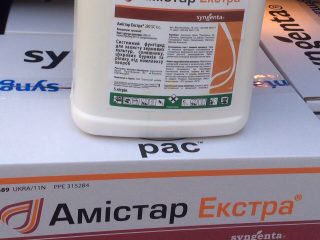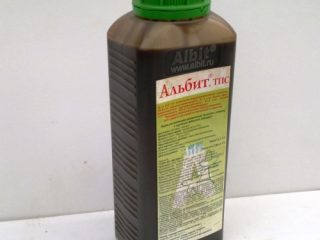Content
Tar soap is used for plants as an effective insecticide. The home remedy brings good results with moderate damage to the garden and garden by pests.
Is it possible to use tar soap in the garden?
The main component of tar soap is natural birch tar, which makes up about 10% of the product. The product also contains benzene, which has a pungent odor, carbolic acid and cresol, alkalis and sodium salts of fatty acids.
The benefit of tar soap for the garden is that it has strong antiseptic and cleansing properties. The product has a suppressive effect on adult pests and larvae, interferes with their development and repels them from agricultural crops.At the same time, the plants themselves do not suffer if the product is used correctly. Soap does not slow down their growth, does not impair flowering and does not have a negative effect on fruiting.
Why is tar soap used in the garden?
Tar soap for plants is used in two ways:
- Watering at the root. Solutions are applied directly to the soil to destroy pests in the upper layers of the soil.
- Spraying. Homemade infusions are used to treat crops leaf by leaf to eliminate insects and their larvae on the green parts of plants.
Tar soap can be used in the garden against gastropods, aphids, beetles and butterfly larvae. In all cases, the product brings a good effect and helps get rid of insects.
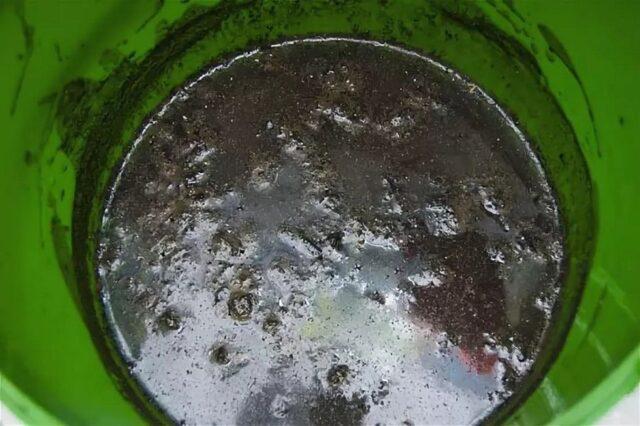
When using tar soap for watering, you need to stick to small concentrations so as not to burn the roots of the plants.
Pros and cons of tar soap
Tar soap as an insecticide has its advantages and disadvantages. The advantages of the product include:
- safety - tar soap does not harm plants and humans;
- lack of resistance - even if you constantly spray crops with a homemade solution, insects will not develop resistance to it;
- affordable price;
- ease of preparation;
- protective effect - tar soap prevents re-infestation by insects for several weeks.
At the same time, the product has certain disadvantages:
- strong unpleasant odor;
- allergenicity - before using the product you need to make sure there is no intolerance;
- negative impact on beneficial insects - tar soap repels not only pests, but also bees;
- mild effect - the product does not kill parasites, but only forces them to leave the attacked plants.
It is not recommended to use tar soap against pests in the country during the fruiting period of crops. If you spray a home remedy on a ripening crop, it will acquire an unpleasant odor and a bitter taste.
What pests are tar soap used in the garden?
Tar soap is a universal remedy and helps get rid of most pests in the garden. Most often, solutions are used to repel several parasites.
From aphids
Aphids are one of the most dangerous pests and cause damage to both vegetable and garden crops. Small insects stick to the leaves of plants in large colonies and suck the juices out of them within a matter of days.
Tar soap against aphids is used in the form of sprays. The treatment helps drive pests off the leaves and prevents them from returning for several weeks.
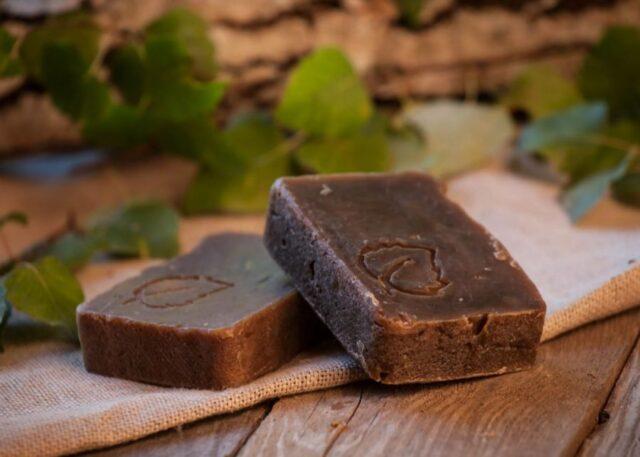
Tar soap forms a film on the leaf blades and prevents aphids from feeding on plant juices
Tar soap forms a film on the leaf blades and prevents aphids from feeding on plant juices
Against the Colorado potato beetle
The use of tar soap in the garden is in demand when crops are damaged by the Colorado potato beetle. Usually the product is used like this: dissolve a small bar in a bucket of warm water and spray the plants generously. You can also first collect pests by hand or wash them off the leaves with a low-pressure stream of liquid, and then treat them with soap.
The home remedy forms a thin protective film on the stems and plates of plants. This layer does not interfere with the processes of photosynthesis and air exchange, but repels pests.The Colorado potato beetle does not like the pungent smell of tar soap and cannot gnaw through plant leaves after treatment, so it quickly leaves the garden.
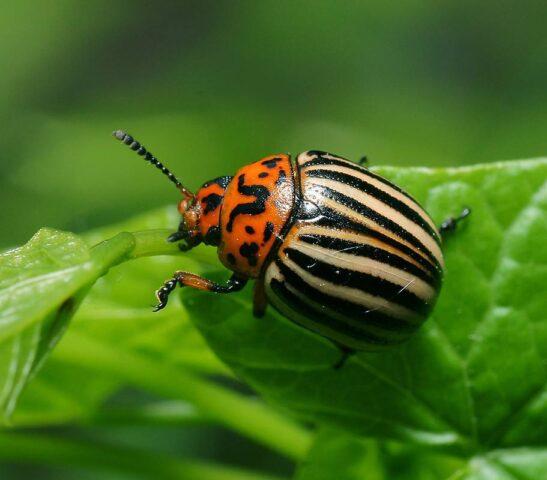
It is recommended to treat plants against the Colorado potato beetle in both dry and rainy weather.
From ants
Ants in general do not belong to the category of pests, but their presence in the garden is considered undesirable. Insects contribute to the spread of aphids throughout plants, and also feed on crop leaves if they are already damaged by parasites.
Tar soap helps get rid of ants. It can be used to spray plants, but the best effect is obtained when treating anthills. Tar soap is mixed with baking soda and garlic, diluted with water and watered abundantly over insect buildings. The method is considered gentle - the ants do not die, but are forced to leave the site.
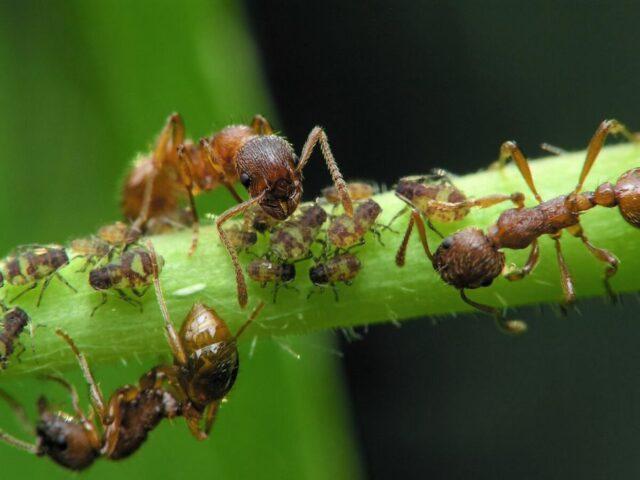
Ants on the site pose a particular danger to fruit and berry crops
How to dilute tar soap for spraying plants
A solution of tar soap against pests is used both in pure form and in combination with other components. You can list a few of the most popular options.
Regular solution
Most often, a standard solution of tar soap is used to treat plants in the garden. They do it like this:
- Pour 10 liters of warm, settled water into a bucket.
- Stir 60 g of crushed bar into the liquid.
- Bring the product to homogeneity.
The resulting preparation can be sprayed on plantings at intervals of 2-3 weeks.But usually the insecticidal agent is simply poured into small containers with a wide neck and hung on tree branches. The pungent odor emanating from the solution is sufficient to eliminate aphids and other harmful insects.
With added soda
Tar soap mixed with baking soda gives a good effect. The solution is made as follows:
- 25 g of soda powder are diluted in 2 liters of liquid.
- Add the same amount of crushed soap.
- Add 10 g of crushed garlic.
- Mix the ingredients thoroughly until completely dissolved.
The finished product is used to treat plantings leaf by leaf. It is also recommended to water anthills with a soda-soap solution to reliably eliminate insects from the area.
Universal composition
Tar soap in the garden against ants and other insects is used with the addition of kerosene. The cooking diagram looks like this:
- Tar soap is ground on a grater.
- Dilute 400 g of chips in 1.2 liters of warm water.
- Add 200 ml of kerosene.
- Stir until completely homogeneous.
Treatment of the garden with tar soap is carried out up to three times a week when there is an abundance of pests and once every 7-10 days as a preventative measure.
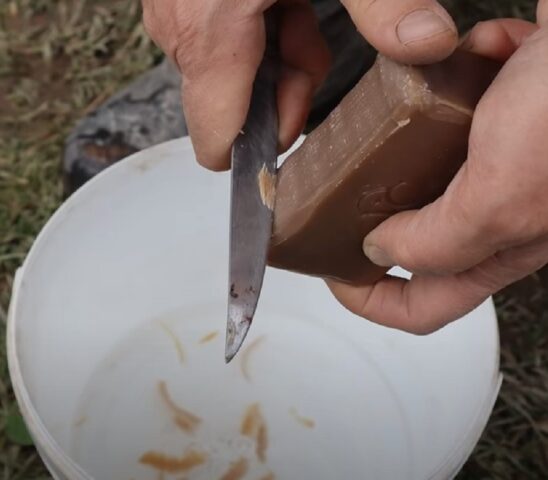
For treating indoor plants, the drug is prepared at the rate of 100 g of tar soap per 1.5 liters of water
With ash
When using tar soap in the countryside, you can add wood ash to it to enhance the insecticidal and strengthening properties of the drug. The product is made according to this scheme:
- Grate 100 g of the tar component on a fine grater.
- Mix with 300 g of ash powder.
- Pour the ingredients into a bucket of hot water.
- Leave for an hour to infuse.
After the period has passed, you need to mix the ingredients thoroughly, pour the solution into a spray bottle and spray the plants in the garden. The drug will not only help drive away parasites, but will also serve as a comprehensive natural fertilizer for plantings.
With tobacco
A soap infusion with the addition of tobacco leaves works well against aphids and Colorado potato beetles in the garden. The cooking recipe is as follows:
- About 200 g of tobacco is ground to a powder.
- Pour the raw materials into a bucket and add a couple of chopped hot peppers.
- Pour the components into 10 liters of water and leave covered for 24 hours.
- After the period has passed, 40 g of wood ash and tar soap are poured into the solution.
- Mix properly.
The plantings are sprayed with tar liquid soap against pests in the garden at intervals of 1-2 weeks. The concentrated product works well against most parasites and serves as a reliable preventive measure.
Alcohol composition
A tincture of tar soap based on alcohol has a good insecticidal and preventive effect. It is prepared according to the following algorithm:
- Grind 40 g of tar soap on a grater.
- Dissolve the shavings in 1 liter of lukewarm water.
- Add 40 ml of pure medical alcohol.
The product is used for spraying the garden in sunless weather. When preparing the solution, carefully observe the dosage so that the alcohol does not leave burns on the leaves of the plants.
With tomato or potato tops
If the plants in the garden are attacked by beetles or aphids, you can use an infusion based on tomato tops to eliminate the insects. It is prepared according to this scheme:
- About 4 kg of tomato leaves and stems are placed in a bucket and 10 liters of hot water are poured.
- Infuse under the lid for 6 hours, and then put on the stove and bring to a boil.
- Heat over low heat for about half an hour.
- Add 50 g of crushed tar soap and again wait for the solution to boil, and then turn off the heat.
You can spray plants with the prepared product not only when insects appear, but also as a preventative measure. Instead of tomato tops, it is allowed to use potato tops in the same proportions.
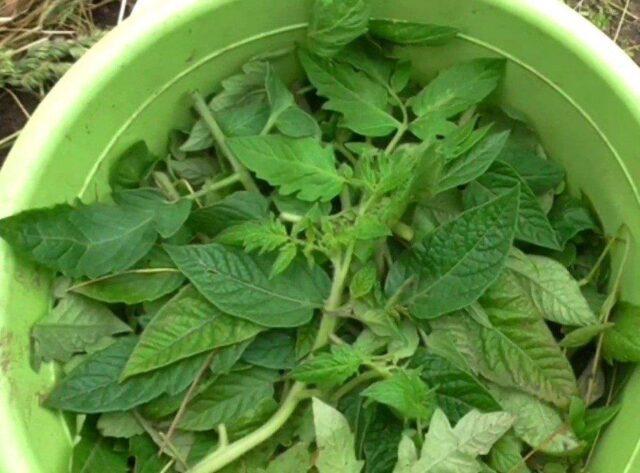
The tops of tomatoes and potatoes have phytoncidal properties and thereby repel pests
How to use tar soap to protect plants
When using infusions based on tar soap against pests, you must adhere to certain rules.
- Repeat spraying of garden and vegetable crops once every 1-2 weeks. If there are a lot of insects on the leaves, plants are treated with tar soap against pests every 2-3 days until the parasites disappear.
- Spraying should be done in warm but sunny weather. It is best to process crops before noon or after sunset. Otherwise, the sun's rays may leave burns on wet leaves.
- You need to spray soap solutions over plantings in calm weather. Otherwise, the insecticidal suspension will be carried away from the plants, and the treatment will be ineffective.
It is not customary to combine tar soap against garden pests with chemical agents. Industrial solutions should be used separately in cases where homemade infusions do not produce results.
Conclusion
Tar soap for plants helps with infection of plantings by insects - beetles, aphids, butterfly caterpillars and others. The product reliably repels pests from the garden and does not harm the crops themselves when used correctly.
